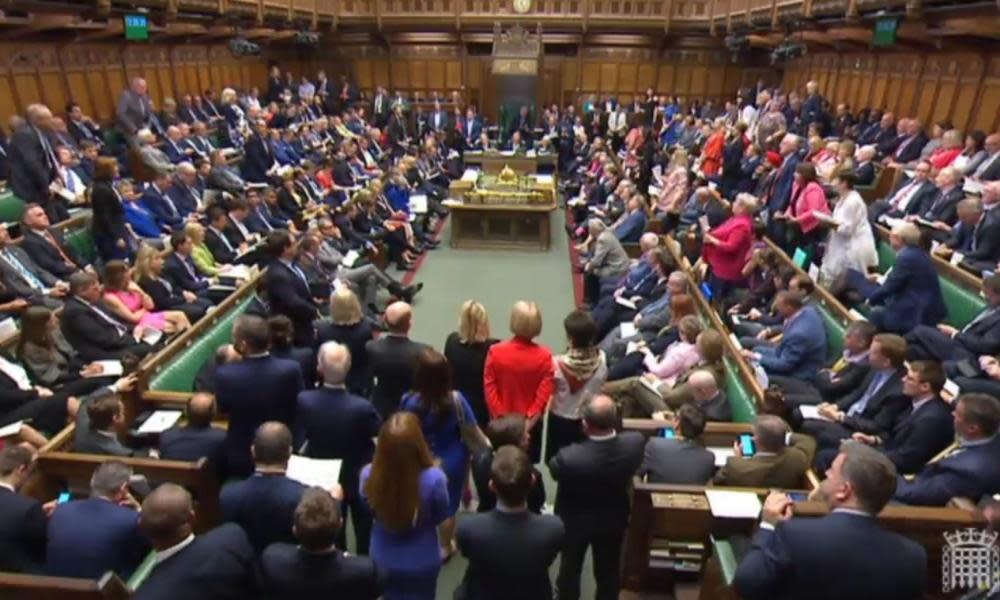Gagging clauses cost House of Commons £2.4m in five years

The House of Commons has spent more than £2.4m on so-called gagging clauses for staff over the last five years, official figures show.
A total of 53 non-disclosure agreements were signed between 2013 and 2017, at a cost of £2,407,176.78, according to data released under the Freedom of Information Act.
Concerns have been raised that parliamentary staff who claim to have been bullied have been asked to sign such agreements to prevent their claims from becoming public.
Angus Sinclair, a former private secretary to the Commons Speaker, John Bercow, told the BBC he was given “compulsory early retirement”, with an £86,250 payoff dependent on him signing a non-disclosure agreement barring him from making complaints about his treatment in the house. Bercow has strenuously denied claims made against him.
The Guardian understands that a committee set up by Andrea Leadsom, the leader of the Commons, to review the house’s bullying policy is expected to rule that a new code will apply only to future behaviour.
Such a move would anger unions who say staff who have been bullied or harassed in the past deserve an opportunity to seek redress.
The figures were unearthed by the Press Association. Commons authorities confirmed that every settlement agreement included confidentiality clauses, which they said did not prevent those who signed them from whistleblowing.
Eleven agreements were signed in 2013, costing a total of £916,082.43, 14 in 2014 (£405,682.08), five in 2015 (£182,706.21) and 15 in 2016 (£584,893). Last year eight non-disclosure agreements were signed, costing a total of £317,813.06.
Leadsom said the figures were surprising. “Whilst we don’t know the details of each of these cases, if any relate to the way an individual has been treated, it further highlights the importance of changing the culture in Westminster,” she said.
“The independent complaints and grievance procedure, which I hope will be implemented in the coming months, will help complainants achieve that by placing them at the heart of the process.”
Maria Miller, the chair of the women and equalities committee, called for greater transparency over payments from the public purse.
“[The high cost] can’t be the drawing up of the contracts – they wouldn’t cost that much to draw up – so it must be the amount of money that’s being paid out. Salaries in the House of Commons are not enormous so that does seem to be a significant amount of money,” she said.
A House of Commons spokesman said: “Like many other organisations, the House of Commons uses settlement agreements to resolve employment disputes under certain circumstances. The House of Commons, which employs around 2,500 members of staff, follows the guidance on settlement agreements provided by Acas and the Cabinet Office.”
The treatment of parliamentary staff is currently governed by a respect policy, which is being reviewed after a raft of allegations of bullying and sexual harassment. The claims are usually made by junior members of staff against senior MPs or managers.
Leadsom set up a steering group which is drawing up a new independent complaints and grievance policy.
Informed sources have told the Guardian the steering group is expected to conclude within weeks that the new policy should not be retrospective. This will mean outstanding claims against a number of MPs could be set aside, union officials say.
In an article in Friday’s edition of The House magazine, Amy Leversidge, the assistant general secretary of the FDA union, says some parliamentary staff deserve to have their cases heard.
“The steering group must … make sure the new policy finds a fair way to deal with past behaviours. Trust and confidence will not be restored if past behaviours go unaddressed,” she writes.

 Yahoo News
Yahoo News 
